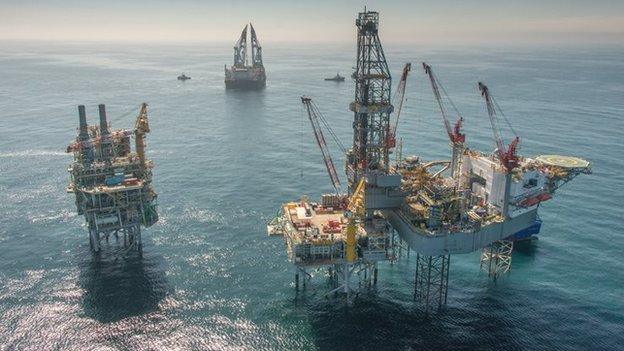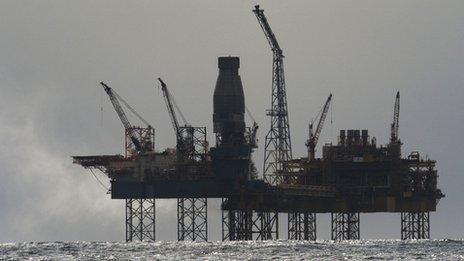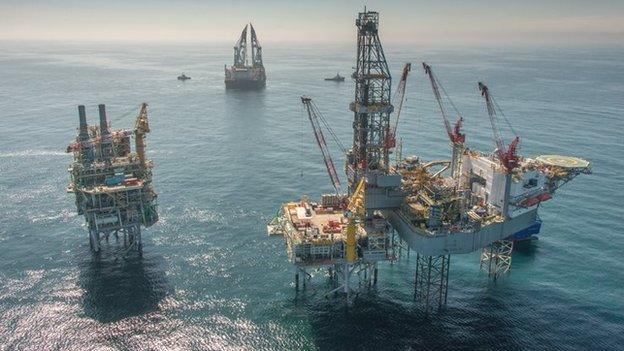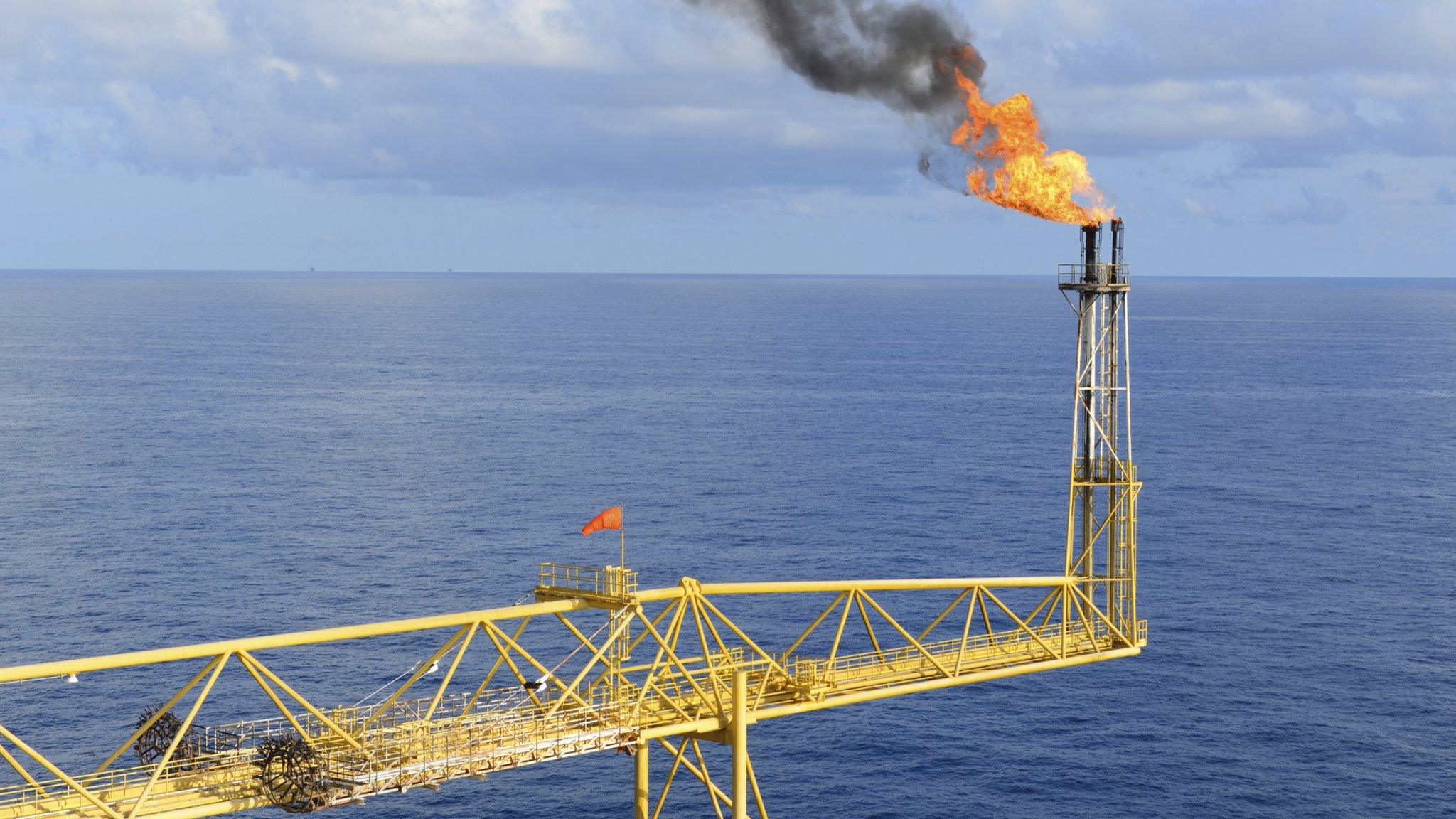Chancellor George Osborne outlines new North Sea tax measures
- Published

Chancellor George Osborne has announced a series of tax measures designed to encourage investment in the North Sea oil and gas sector.
In his Autumn Statement, he said a supplementary charge on oil firms' profits would be cut from 32% to 30%.
Industry body Oil and Gas UK described it as "an important first step towards improving the fiscal competitiveness of the UK North Sea".
Other new measures included a new "cluster area allowance".
It is aimed at encouraging companies to invest in ultra-high pressure and high temperature clusters.
Mr Osborne said there had been record investment in the North Sea this year.
But he warned that lower oil prices "clearly presents a challenge to this vital industry".
Treasury Chief Secretary Danny Alexander is due to set out the UK government's proposals in Aberdeen on Thursday.
Oil and Gas UK said the reduction in the supplementary charge was the first cut in tax rates for the UK North Sea for 21 years.
'First steps'
Chief executive Malcolm Webb said: "Oil and Gas UK also welcomes the extension of the ring fence expenditure supplement, which will allow investors to offset their costs against future production for a period of up to 10 years instead of the current six years.
"This move, which brings the offshore in line with onshore oil and gas production, could help attract new entrants into the basin and is just one of a range of fresh measures needed to help improve the investment outlook.
"However, these can only be seen as first steps towards improving the overall fiscal competitiveness of the UK North Sea."
He added: "We will certainly need further reductions in the overall rate of tax to ensure the long-term future of the industry.
"Given the current crisis in exploration, we also need to see measures to promote exploration activity across the basin.
"HM Treasury has further proposals to discuss with the industry tomorrow and we look forward to hearing these."
'Important signal'
Alan McCrae, head of energy tax at PwC, said: "The UK government has been listening carefully to the concerns of the oil and gas industry and gaining a clearer understanding of the many issues it faces as it seeks to maximise opportunities in a maturing and challenging environment.
"The reduction in the supplementary charge rate from 32% to 30%, the extension of the Ring Fence Expenditure Supplement from six years to 10 years and the new cluster allowance will be welcomed by many in the industry and will be seen by some investors as an important signal that the UK is prepared to listen to their concerns."
Environmental group WWF Scotland director Lang Banks said: "The last thing we need to see is even more tax breaks or subsidies for new North Sea oil drilling.
"The climate science is clear, the vast majority of known fossil fuel reserves need to be left in the ground and not exploited.
"We instead need to see an energy transition that enables us to harness the engineering skills currently deployed in the oil and gas industry and apply them to supporting a range of cleaner forms of energy production."
Last week, business leaders renewed calls for North Sea tax breaks after a survey suggested confidence in the sector was at its lowest level for six years.
Aberdeen and Grampian Chamber of Commerce (AGCC) found operators were concerned about the effect of low oil prices on exploration and production.
It said reform of the industry's fiscal regime was needed in the Autumn Statement.
- Published25 November 2014

- Published18 November 2014

- Published5 November 2014

- Published3 November 2014

- Published30 October 2014

- Published23 October 2014
